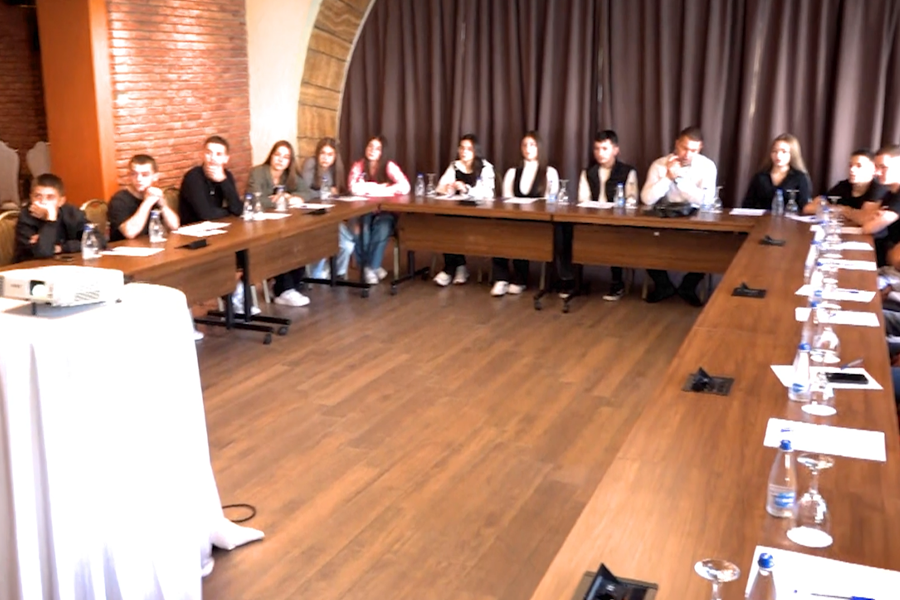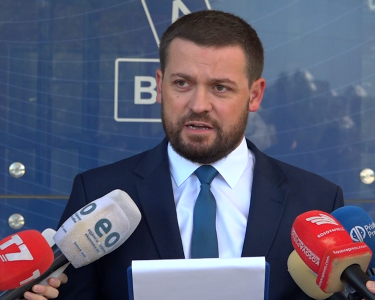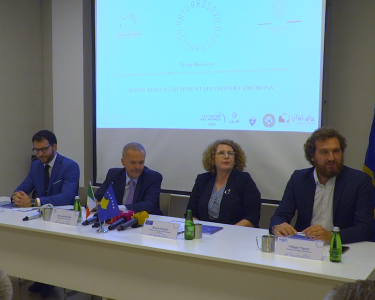Fake news about war in the world is affecting the creation of various tensions.
The Bosnian community in Kosovo considers these news about the wars mainly as propaganda with negative consequences for society.
Within the project “Media education against disinformation for non-majority communities in Kosovo”, school students in Peja learned today how to distinguish fake news in online media.
Student Harris Bademovic told KosovaPress that he has learned to distinguish between fake and true information. He says that he has come across fake news such as those where Putin said that “the war will end tomorrow”.
“I I learned how to trust in media, how to find the good information, how to find a difference between false and the incorrect information. The fake news is dangerous. It can make a lot of tensions against people. A lot… like for the war in the Ukraine. I seen the information when Putin say the war is going to end tomorrow, but when I searched a little bit I seen it was false. We can warn people, and to inform them, how to find a difference between false and true information”, he said.
Another student, Haris Kaçamakovic, says that he has come across a lot of fake news, including those about the war in Gaza.
” I learned how to be secure in media, how to act in media and how not to act in media. We should avoid fake news if we can spot them and if we find fake news we should double check plus check. Yeah, I saw one (fake news) about the war in Gaza, which I was proud because they were mentioning like the war is ending today, and I was like, yeah, but when I double checked, I found that it was a lie and fake news”, he said.
Zeq Kojiq from the “Bedri Pejani” gymnasium in Peja says that fake news has “conquered” the Internet.
“Fake news is something that has no place in our lives, yet it is inevitable considering that we use the internet every day, the internet is full of it. Today we had the opportunity to learn how to avoid them and how to recognize them. Today anyway we can see a lot of fake news, first of all in this time of wars, let’s say fake sports news, we have taken some examples of news such as for example Putin’s statement that the war with Ukraine must end, but when we verify the news, we can conclude that this is not the case and that it is only propaganda that wants to manipulate the thoughts and our feelings”, said Kojiq.
The professor of mathematics at the “Rifat Gjata” technical high school in Peja, Edin Pashiq, has spoken about the negative effects caused by fake content.
“My opinion is that children should distinguish information in the best way, first considering the information they read in the media or on the internet, so that they do not immediately spread false information, but to ensure whether that information is correct or incorrect. Their influence on the new generations is very important, because the new generations, before checking the information, they first spread it, and then their content can be very bad for society”, he said.
The trainer of the project, Linda Baleta, has emphasized that the focus of the training is not only on the identification of false information, but also the impact that the media has on perceptions in the choices that students make in life.
“With our media education training, we aim to empower young high school students to distinguish the information they should trust. We are equipping them with these trainings so that they are able to make well-informed decisions and become responsible citizens. The focus of the training is not only on identifying false information, but also on understanding the impact that the media has on perceptions, in the choices they make in life”, she said.
The project “Media education against disinformation for non-majority communities in Kosovo”, supported by the United States Embassy in Prishtina, started about three years ago.
This project has included training for students from non-majority communities in most cities of Kosovo. Its purpose is for the young people of these communities to learn to distinguish fake content from real ones. Also, through the topics covered during the training, it is intended to develop the critical thinking of the participants. /A.Shala/









